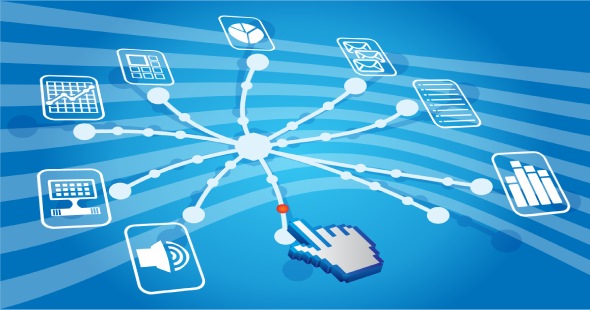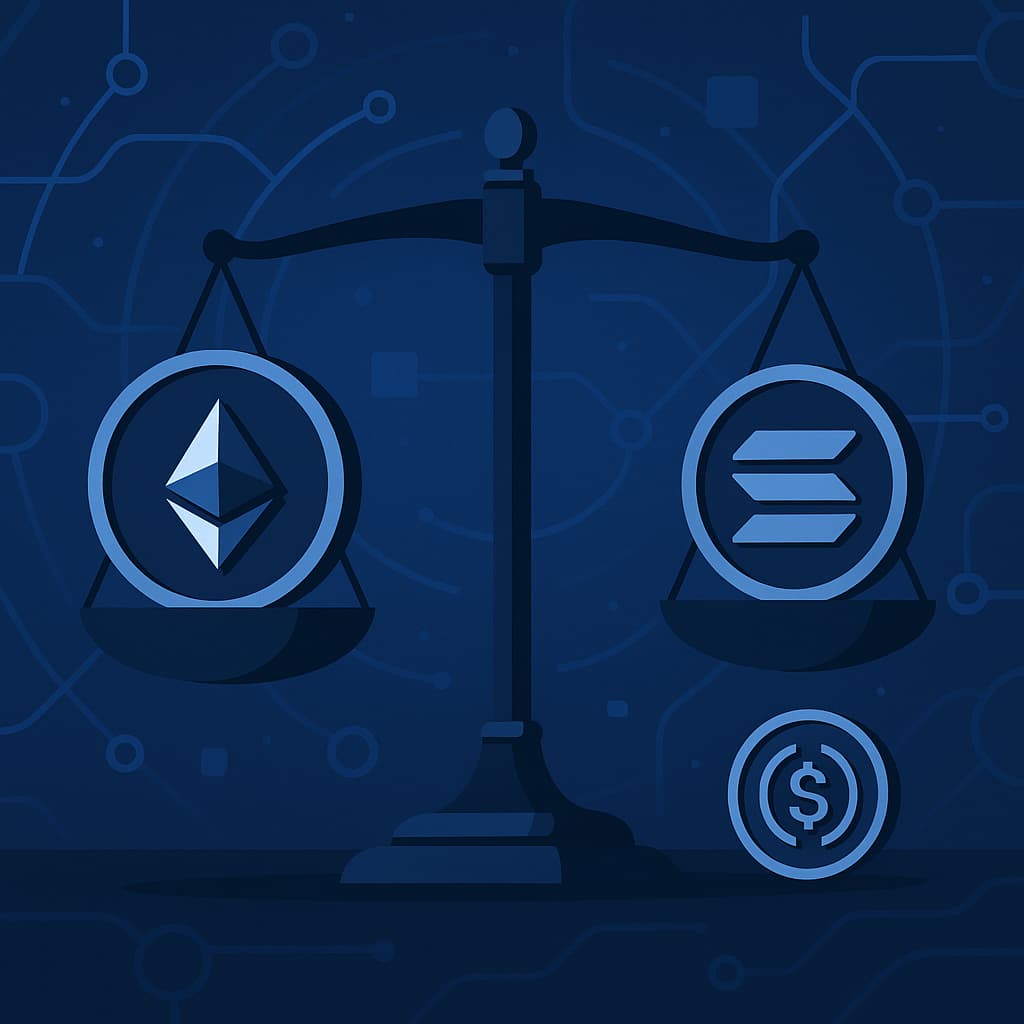-
The rise of blockchain technology has transformed various industries by providing secure, transparent, and immutable digital records. One such promising application of blockchain development services is document management. This comprehensive guide will walk you through the concepts of blockchain-based document management, why it matters, its technical aspects, and how organizations can adopt it effectively.
Introduction to Blockchain Technology
Blockchain is a decentralized ledger that records transactions across a peer-to-peer network. Each "block" of transactions is cryptographically linked to the previous one, forming a "chain." This structure makes it nearly impossible to alter historical data without detection. Beyond cryptocurrencies, blockchain's properties of immutability, transparency, and decentralization make it ideal for use cases like supply chain tracking, healthcare data management, and—most relevantly—document management.
Key Characteristics of Blockchain
- Decentralization: No single authority controls the entire network, reducing the risk of central points of failure.
- Immutability: Any change to a stored record is immediately visible, deterring fraud or data tampering.
- Security: Transactions are secured via cryptographic algorithms, making unauthorized access or manipulation extremely difficult.
- Transparency: All network participants may have the capability to view transactions, leading to traceable audit trails.
Also, Read | Create a Simple Document Management System Using Blockchain
Why Use Blockchain for Document Management?
Traditional document management systems (DMS) often rely on centralized servers or third-party vendors to store and manage sensitive data. This centralized approach can expose organizations to risks such as:
- Security breaches
- Data manipulation by malicious insiders
- Single points of failure leading to system downtime
By leveraging blockchain, companies can establish a tamper-proof environment where documents and their versions can be tracked transparently. This decentralized approach helps in:
- Ensuring Data Integrity: Blockchain's immutability guarantees that any alteration is visible to all participants.
- Streamlining Regulatory Compliance: Comprehensive audit trails simplify compliance with standards such as HIPAA, GDPR, or ISO certifications.
- Enhancing Security: Distributed storage across multiple nodes increases resilience against attacks.
- Improving Traceability: Every document transaction is permanently recorded, making it easier to trace the entire document history.
Also, Check | How to Create Your Own Private Blockchain using Cosmos
Technical Architecture of a Blockchain-Based Document Management System
Implementing a blockchain-based DMS involves a combination of on-chain and off-chain elements, consensus mechanisms, and cryptographic techniques. Below is a typical architecture outline.
On-Chain vs. Off-Chain Storage
- On-Chain: Storing the entire document directly on the blockchain. While this ensures immutability, it can be very expensive and slow due to blockchain's limited throughput.
- Off-Chain: Storing only a cryptographic hash of the document on the blockchain, while the actual file resides in a separate distributed file system like IPFS (InterPlanetary File System) or a secure cloud solution.
Consensus Mechanisms
Consensus mechanisms determine how nodes in a blockchain network agree on the validity of transactions (or document entries). Some common mechanisms include:
- Proof of Work (PoW): Nodes compete to solve cryptographic puzzles, ensuring high security but slower transaction speeds.
- Proof of Stake (PoS): Nodes validate transactions based on their stake, providing faster transaction speeds with less energy consumption.
- Practical Byzantine Fault Tolerance (pBFT): Commonly used in private or consortium blockchains, offering quick finality but requiring trusted validators.
Cryptographic Hashing
- Hash Function: A one-way function (e.g., SHA-256) that converts any file or data chunk into a fixed-length string. Even a minor change to the document results in a completely different hash.
- Hash Storage on Blockchain: By storing only the hash on the blockchain, the size and cost of on-chain storage are minimized, while still preserving proof of authenticity.
Smart Contracts and Automation
Smart contracts are self-executing scripts running on the blockchain. They can automate workflows like:
- Document versioning
- Automated access control
- Notifications on updates or approvals
- Expiration of certain document-based permissions
Also, Check | How to Access Private Data in Smart Contracts
Implementation Approaches
Public Blockchains
Public blockchains like Ethereum, Solana, or Polygon (formerly Matic) allow anyone to join, making them fully decentralized. Public blockchains are often considered more secure but can be costlier and slower for high-volume document transactions, due to network congestion and transaction fees (gas).
Private (Permissioned) Blockchains
In a private or permissioned blockchain, only authorized entities can read or write to the ledger. This setup is common in enterprise environments where privacy and compliance are paramount. Platforms like Hyperledger Fabric or R3 Corda provide frameworks for building permissioned blockchain solutions.
Hybrid Models
A hybrid approach combines aspects of both public and private blockchains. Sensitive documents might be shared only among trusted nodes in a private network, while the final cryptographic proof or state changes could be anchored on a public blockchain for maximum immutability.
Also, Read | Getting Started with Hybrid Smart Contract Development
Use Cases and Industry Applications
Legal and Regulatory Documents
Blockchain can help law firms, courts, and regulatory bodies manage sensitive legal documents with verified timestamps and audit trails. Immutable records reduce the risk of forgery and simplify dispute resolution.
Supply Chain and Logistics
Bills of lading, certificates of origin, and other logistics documents can be maintained on a blockchain to ensure authenticity, reducing fraud and streamlining cross-border transactions.
Healthcare
Patient records, lab results, and insurance claims can be stored securely, ensuring patient privacy and consistent data across multiple healthcare providers.
Real Estate
Properties' titles, mortgage documentation, and land registry records can be maintained on the blockchain, preventing title disputes and enhancing transparency for buyers and sellers.
You may also like | Industrial Blockchain Solutions for Frictionless Business
Challenges and Considerations
Scalability: High transaction loads and document sizes can strain blockchain networks, leading to slower throughput or increased costs.
Privacy: Storing data on a public blockchain can clash with data privacy regulations like GDPR. Off-chain storage or private blockchains are common solutions.
Integration with Existing Systems: Migrating from legacy systems to blockchain-based DMS may require significant time, technical resources, and stakeholder alignment.
Regulatory Compliance: Different jurisdictions have varying laws around data sovereignty, e-signatures, and records management, requiring tailored solutions.
Cost: Transaction fees, infrastructure setup, and ongoing maintenance can be substantial, especially in public blockchain environments.
You may also like to discover | Top Web3 Trends | Creating the Future of Finance
Best Practices for Blockchain-Based Document Management
Select the Right Blockchain Platform: Analyze your use case to determine whether a public, private, or hybrid model is most appropriate.
Adopt Off-Chain Storage: Where possible, store large files off-chain and keep only hashed references on the blockchain to optimize costs.
Implement Clear Access Controls: Use roles-based permissions to ensure the right people have the right level of access.
Encrypt Sensitive Data: Beyond hashing, consider advanced encryption techniques to protect document contents, especially for regulatory compliance.
Maintain Comprehensive Audit Logs: Although blockchain inherently provides an audit trail, keep supplementary logs for real-time monitoring and compliance reporting.
Future Trends in Blockchain Document Management
- Integration with AI/ML: AI can analyze document data for insights while blockchain provides secure, trusted storage.
- Self-Sovereign Identity (SSI): Coupling document management with SSI frameworks could give individuals or organizations full control over their digital identity and access rights.
- Interoperability: Efforts like Polkadot, Cosmos, and blockchain bridges will allow different blockchain networks to exchange information seamlessly, broadening the scope of document management solutions.
- Smart Contract Standardization: Emerging standards and frameworks could further streamline the development and deployment of document management dApps across different industries.
You may also like to check | The Potential of Web3 in Streamlining B2B Collaboration
Frequently Asked Questions (FAQ)
What is the main benefit of using blockchain for document management?
The main benefit is data integrity through immutability. Documents stored (or their hashes stored) on a blockchain are protected against tampering. This makes audits, dispute resolutions, and regulatory compliance more robust and transparent.
Are public blockchains suitable for enterprise-level document management?
It depends on the specific use case. While public blockchains offer a high level of decentralization and security, they can also be expensive and slower. Private or consortium blockchains are often preferred by enterprises that require privacy and higher transaction throughput.
How does off-chain storage work?
Off-chain storage typically involves keeping the actual document in a secure data store (e.g., IPFS, secure cloud storage) while storing a cryptographic hash of the file on the blockchain. This reduces blockchain transaction costs and data bloat.
What about data privacy and GDPR compliance?
To comply with data privacy regulations, sensitive information should never be stored in plain text on a public blockchain. Instead, organizations can use private blockchains or a hybrid approach, along with encryption and hashed references. Data can also be removed from off-chain storage while leaving only an immutable proof of existence on-chain.
How do I integrate a blockchain-based DMS with legacy systems?
Integration involves developing APIs or middleware that communicate with existing databases and document repositories. Many blockchain platforms provide SDKs and integration tools to simplify this process. Consider a phased adoption strategy to minimize disruption.
Conclusion
Blockchain technology brings a new paradigm of trust, security, and transparency to document management systems. By storing cryptographic proofs of documents on decentralized networks and leveraging smart contracts for automated workflows, organizations can enhance data integrity, traceability, and compliance. Despite potential challenges around scalability, privacy, and cost, the evolution of blockchain platforms and the rise of hybrid solutions continue to make this technology more accessible and robust for real-world applications. In case if you are looking to explore the blockchain development space to build your project, connect with our skilled blockchain developers to get started.

Our Offices
INDIA
Emaar Digital Greens, Sector 61,
Gurugram, Haryana
122011.
Welldone Tech Park,
Sector 48, Sohna road,
Gurugram, Haryana
122018.















